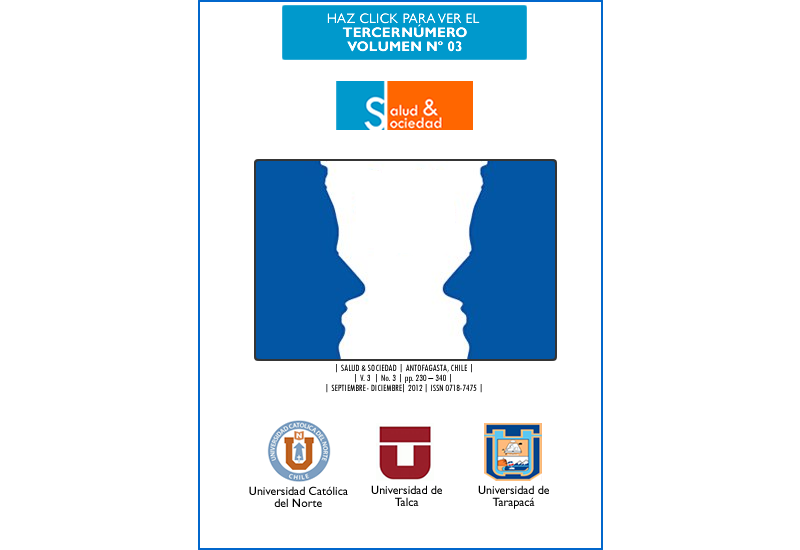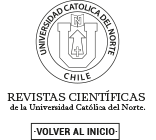Vivendo sobre escombros: qualidade de vida no haiti pós-terremoto,
DOI:
https://doi.org/10.22199/S07187475.2012.0003.00001Keywords:
Haiti, Terremoto, Crise humanitária, Qualidade de vida, Earthquake, Humanitarian Crisis, Quality of life,Abstract
Este artigo pretende lançar uma reflexão sobre a qualidade de vida no Haiti, após o terremoto, utilizando os domínios apontados pelo instrumento de avaliação da qualidade de vida da Organização Mundial da Saúde, o WHOQOL 100, como norteadores desta análise. A fim de organizar os dados colhidos in loco antes e depois da catástrofe, desdobramos estes domínios nas categorias contempladas pelas perguntas do referido instrumento: saúde e assistência médica; educação e acesso à informação; renda e profissão; segurança; meio ambiente; espaço físico e moradia; lazer e tempo livre; família e rede social; satisfação com a própria vida e perspectiva de vida; espiritualidade e crenças pessoais. Concluímos que um estudo sobre qualidade de vida no país deve considerar as particularidades das regiões e das condições socioeconómicas de sua população, bem como as características culturais, em que a resiliência e a religiosidade permeiam a maneira como enfrentam os reveses da vida. Considerando que o Haiti já se encontrava em uma situação de crise humanitária antes do terremoto, apontamos um possível impacto paradoxal da catástrofe sobre a população, com efeitos ora negativos sobre a segurança e os laços familiares, ora favoráveis sobre as condições de sobrevivência da população mais miserável.
This article analyzes the quality of life in Haiti after the earthquake, based on the domains of the World Health Organization Quality Of Life assessment instrument (WHOQOL 100). In order to organize the data collected on-site before and after the disaster, the domains were categorized according to the groups denominated in the WHOQOL: health and medical care, education and access to information, income and occupation, security, environment, physical space and housing, leisure and free time, family and social network, satisfaction with life and outlook on life, spirituality and personal beliefs. We conclude that a study on quality of life in Haiti should consider the specific features of the region and its socioeconomic conditions, as well as the cultural features of the population, given that resilience and religiosity strongly affect the way people face the setbacks of life. Taking into account that Haiti was already facing a humanitarian crisis before the earthquake, we point out a possible paradoxical impact of the disaster on the population, with negative effects on security and family ties and favorable effects on the survival conditions of the most miserable segment of the population.
Downloads
References
Aquino, C. A. B. & Martins, J. C. de O. (2007). Ócio, lazer e tempo livre na sociedade do consumo e do trabalho. Revista Malestar e Subjetividade, 7(2), 479-500.
Argent contre travail : à quel prix? (2011). Haiti Grassroots watch. Recuperado da http://haitigrassrootswatch.squarespace.com/ayiti-kale-je-kreyl/2011/7/18/argentcontre-travail-a-quel-prix.
Corten, A. (2006). Planète misère: Chroniques de la pauvreté durable. Paris: Éditions Autrement.
Dandicat, E. (2011). The other side of the water. Em Farmer, P., Haiti after the earthquake (pp. 249-258). New York: PublicAffairs.
Detrás de la epidemia de cólera. (2010). Haiti Grassroots watch. Recuperado da http://haitigrassrootswatch.squarespace.com/haiti-veedor-espanol/2010/12/26/detrasde-la-epidemia-de-colera.html.
Farmer, D. B. (2011). Mothers and daughters on Haiti. Em Farmer, P., Haiti after the earthquake. (pp. 282-295). New York: PublicAffairs.
Farmer, P. (2005). Pathologies of Power. Health, human rights, and the new war on the poor. University of California Press.
Farmer, P. (2011). January 12 and the aftermath. Em Farmer, P. Haiti after the earthquake. (pp.54 – 120). New York: PublicAffairs.
Fernandes, R.C. & Nascimento, M. S. (2007). La violence à Bel Air, Port-au-Prince, Haiti. Étude sur la victimisation. The International Bank for Reconstruction and Development /The World Bank.
Garcia, F. E & Mardone, R. (2010). Prevención de trastorno de estrés postraumático en supervivientes del terremoto de Chile de febrero de 2010: una propuesta de intervención narrativa. Terapia Psicológica. Vol. 28, Nº 1, 85-93 Haïti-Accident: L’effondrement de l’édifice d’une école évangélique provoque un nouveau drame humain. Alter Presse. Recuperado da http://www.alterpresse.org/spip.php?article7861.
Hurbon, L. (1993). Les mystères du vaudou. Paris: Gallimard. Index Mundi (2011). Recuperado da http://www.indexmundi.com/pt/haiti/.
Ke, X.; Liu, C. & Li, N. (2000). Social support and quality of life: a cross-sectional study on survivors eight months after the 2008 Wenchuan earthquake. Psychiatriy and Clinical Neurosciences (54), 427 -433.
Kobel, D. (2011). Doctors in tents. Em Farmer, P., Haiti after the earthquake (pp. 316-319). New York: PublicAffairs.
Laferrière, D. (2011). Tout bouge autour de moi. Paris: Éditions Grasset & Fasquelle. L'émigration est la meilleure solution pour les Haïtiens (2010). Slater Fr. Recuperado da http://www.slate.fr/story/17091/lemigrationest-la-meilleure-solution-pour-les-haitiens.
La France en fait-elle assez pour Haïti? (2011). L’Express. Recuperado da http://www.lexpress.fr/actualite/societe/la-franceen-fait-elle-assez-pour-haiti
Le Breton, D. (2006). Anthropologie de la douleur. Paris: Éditions Métailié. L’ Insecurité à Haïti entrave l’essor économique de l’île. (2008, 2 juillet). Le Monde International, pp.6.
Lonergan, S.; Gustavson, K. & Carter, B. (2009). The Index of Human Insecurity. Recuperado da:
http://unpan1.un.org/intradoc/groups/public/documents.
Luchi, E. (2010). Between war and peace. Disasters, 4(34), 973-995. doi:10.1111/j.0361-3666.2010.01178.x
Médecins du Monde (2005). La prise en charge des victimes de violences. Actes du colloque. Port-au-Prince: les Éditions de l’Uramel.
Médecins Sans Frontières (2008). No cash, no care: How “user fees” endanger health. An MSF briefing paper on financial barriers to healthcare. Médecins Sans Frontières: Operational Center Brussels.
Médecins Sans Frontières (2010). Emergencies responses after the earthquake. Recuperado da www.msf.org
Melo King, A. (2010). Les différentes formes de violence à Léogâne et alentours: enquête qualitative. MSF : Operational Center Geneva.
Minayo, M. C. S.; Hartz, Z.M.A. & Buss, P. M. (2000). Qualidade de vida e saúde: um debate necessário. Ciência e Saúde Coletiva, 5(1), 7-18.
Montas-Dominique, M. (2011). If I don’t shout. Em Farmer, P., Haiti after the earthquake (pp. 259-272). New York: PublicAffairs.
MSF Briefing Paper (2008). The obstacles to safe delivery for vulnerable women in Port-au-Prince. Médecins Sans Frontières -Operational Center Amsterdam.
Neves, M. L. (2011). Elas levam a paz. Revista Marie Claire, edição de novembro, pp. 97 -104.
Pan American Health Organization (1999). Humanitarian Assistance in Disaster Situation. A guide of effective aid. Emergency Preparedness and Disaster Relief Coordination Program. Washington, DC.
Pan American Health Organization (2011). Health response to the earthquake in Haiti: January 2010. Washington, D.C.
Pérez-Sales, P. (2003). Mental health in disasters: a psychosocial approach. Em Baubet, T.; Le Roch, K.; Bitar, D. & Moro, M.R. Soigner malgré tout (pp. 112-124). France: Éditions La Pensée Sauvage.
Ponsar, F.; Ford, N.; Van Herp, M.; Mancini, S.; & Bachyi, C. (2009). Mortality, violence and access to care in two districts of Port-au-Prince, Haiti. Conflit and Health. BioMed Central, 3(4), 1-6. doi:10.1186/1752-1505-3-4
Schwartz, T. T. (2011). First we need taxis. Em Farmer, P., Haiti after the earthquake (pp. 330-343). New York: PublicAffairs.
Sutter, C. (2010). Haiti, país mal dito. Revista Mal-estar e Subjetividade, 10 (3), 931- 950.
Thomaz, O. R. (2010). O Terremoto no Haiti, o Mundo dos Brancos e o Lougawou. Novos Estudos (86), 23-39.
Trevors, J. T. & Saier Jr. M.H. (2010). The crisis in Haiti, 2010: What´s to be done? Water Air Soil Pollut. 212:1–2. doi: 10.1007/s11270-010-0338-8
United States Institute of Peace. (2009). Haiti, a republic of NGOs? Recuperado da http://www.usip.org/events/haiti-republicngos.
WHOQOL Group (1995). The World Health Organization Quality of Life Assessment (WHOQOL): position paper from the World Health Organization. Social Science and Medicine 41(10):1.403-1.409.
Downloads
Published
Issue
Section
License
Los autores continúan como propietarios de sus trabajos, y pueden volver a publicar sus artículos en otro medio sin tener que solicitar autorización, siempre y cuando indiquen que el trabajo fue publicado originariamente en Revista Salud & Sociedad (ISSNe:0718-7475).



_(1).png)





